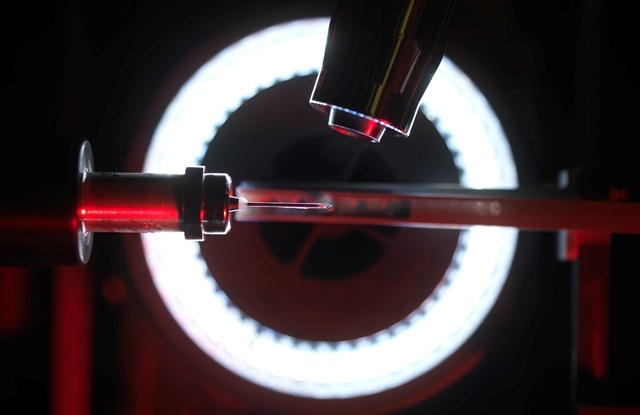
A team of scientists have found a breakthrough in their attempts to beat antibiotic-resistant bacteria.
Antibiotic resistance is the process where the bacteria develop resistance to the drugs used to treat them. It has been regarded by most scientists as one of the deadliest threats that mankind has been facing.
In Europe, around 25,000 deaths per year have been reported due to drug-resistant infections. In order to combat the threat, scientists have been developing new forms of antibiotics that can act against the antibiotic-resistance.
And, scientists at the University of East Anglia (UEA) claim to have discovered a way through, in which drugs could affect the cell membrane of the group of stubborn bacteria.
The membrane works as a defensive barrier against any attacks by the antibiotic drugs and immune system. Though the formation of the membrane has not been well understood, new research reveals that a set of certain molecules called lipopolysaccharides are responsible in the formation of the tough membrane.
Researchers at UEA's Norwich Medical School believe that if drugs could be made to attack these molecules, the formation of the membrane would be stopped, eventually making the bacterial cells exposed and be destroyed by the human immune system.
According to a report by World Health Organization (WHO), antibiotic-resistance in bacteria is spreading worldwide, causing severe consequences. Common infections which have been treatable for years can be a threat in future.
"We have identified the path and gate used by the bacteria to transport the barrier building blocks to the outer surface. Importantly, we have demonstrated that the bacteria would die if the gate is locked," said Changjiang Dong, the lead researcher of the study, in a news release.
The method, however, will have to be tested on infection-causing bacteria and would work only on a group of bacteria which includes E.Coli and others such as Klebisella pneumonia.
Moreover, researchers are not sure if the bacteria could develop resistance to the newly produced drugs.
"The number of super-bugs are increasing at an unexpected rate. This research provides the platform for urgently-needed new generation drugs. The really exciting thing about this research is that new drugs will specifically target the protective barrier around the bacteria, rather than the bacteria itself. Because new drugs will not need to enter the bacteria itself, we hope that the bacteria will not be able to develop drug resistance in future."
The research has been published in the journal Nature.

















